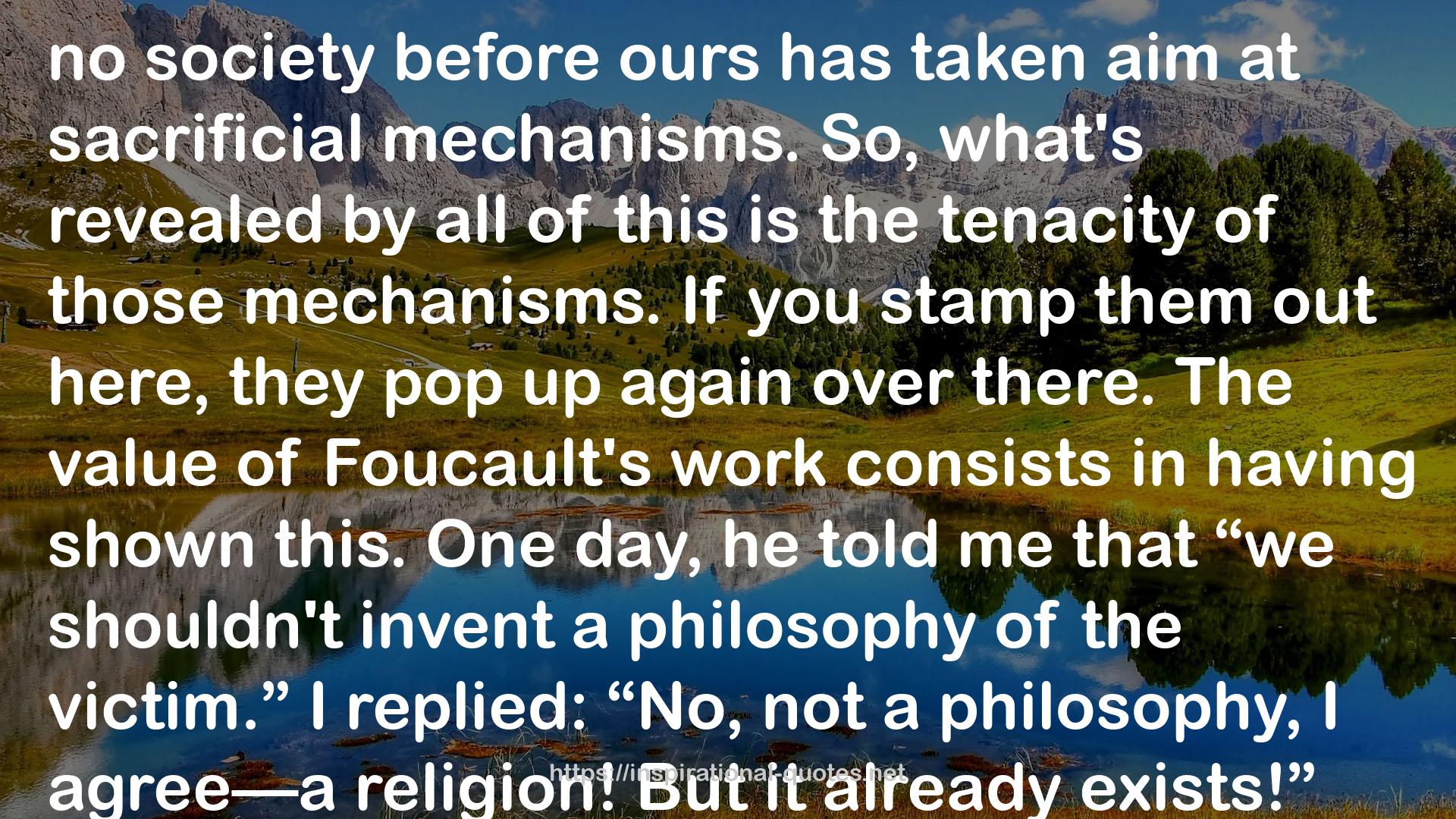" no society before ours has taken aim at sacrificial mechanisms. So, what's revealed by all of this is the tenacity of those mechanisms. If you stamp them out here, they pop up again over there. The value of Foucault's work consists in having shown this. One day, he told me that “we shouldn't invent a philosophy of the victim.” I replied: “No, not a philosophy, I agree—a religion! But it already exists!” Foucault understood the very thing that optimistic rationalism didn't foresee: new forms of “victimization” are constantly emerging from the instruments that were intended to do away with them. It's his pessimism that separates us: unlike him, I think that historical processes have meaning and that we have to accept this, or else face utter despair. Today, after the end of ideologies, the only way to embrace this meaning is to rediscover religion. Of course, even as the victimary mechanism keeps being reborn, Christianity is always there to transform and subvert it, like a leavening agent—in the humanist rationalism of the eighteenth century Enlightenment, for example. When Voltaire defended Jean Calas, the persecuted Protestant, he was being more Christian than the Catholic priests who were against him. His mistake was to have had too much faith in his own perfection, to imagine that the correctness of his position was due to his own genius. He couldn't see how much he owed to the past that stretched out behind him. I respect tradition, but I'm not justifying History. MT "
― René Girard , When These Things Begin: Conversations with Michel Treguer
